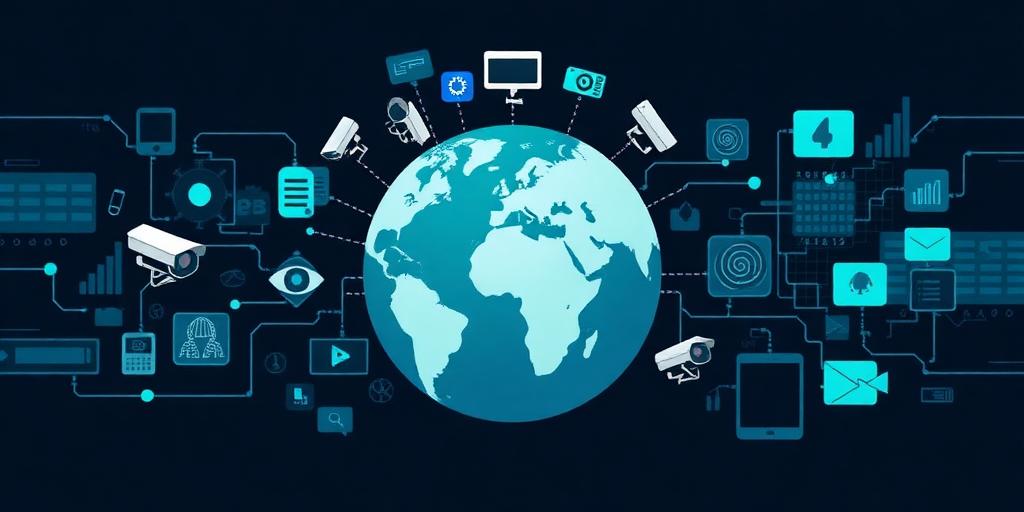The Ethics of Surveillance Technologies Globally
Surveillance technologies are rapidly evolving, becoming increasingly pervasive in our daily lives. From facial recognition in public spaces to data tracking on our smartphones, these technologies raise complex ethical questions that demand careful consideration. This post delves into the ethical implications of surveillance technologies on a global scale, examining the trade-offs between security, privacy, and human rights.
The Rise of Surveillance Technologies
Surveillance technologies encompass a broad range of tools and techniques used to monitor, track, and analyze individuals and populations. These technologies are employed by governments, law enforcement agencies, and private companies for various purposes, including:
- Security: Preventing and detecting crime, terrorism, and other threats.
- Law Enforcement: Identifying and apprehending suspects, gathering evidence.
- Business Intelligence: Understanding consumer behavior, improving marketing strategies.
- Public Health: Tracking disease outbreaks, monitoring compliance with health regulations.
As these technologies become more sophisticated and widespread, their potential impact on society grows exponentially.
Ethical Considerations
The use of surveillance technologies raises several critical ethical concerns:
- Privacy Violations: Surveillance can intrude on individuals' privacy, collecting and storing sensitive information without their knowledge or consent. This can lead to a chilling effect on freedom of expression and association, as people may self-censor their behavior to avoid being monitored.
- Bias and Discrimination: Surveillance systems can perpetuate and amplify existing biases, particularly when they rely on algorithms trained on biased data. This can result in discriminatory outcomes, disproportionately affecting marginalized communities.
- Lack of Transparency and Accountability: Many surveillance systems operate in secret, with little or no oversight or accountability. This makes it difficult to assess their impact and ensure they are used responsibly.
- Erosion of Trust: Excessive surveillance can erode trust between individuals and institutions, leading to social fragmentation and instability.
- Security Risks: Surveillance data can be vulnerable to hacking and misuse, potentially exposing individuals to identity theft, blackmail, and other harms.
Global Perspectives
The ethics of surveillance technologies vary across different countries and cultures. Some countries prioritize security and public safety, while others place a greater emphasis on individual privacy and civil liberties. For example:
- China: Employs extensive surveillance systems for social control and monitoring of its citizens.
- Europe: Has implemented strict data protection laws, such as the GDPR, to protect individuals' privacy rights.
- United States: Has a more fragmented approach to surveillance regulation, with varying laws at the federal and state levels.
These different approaches reflect diverse political, social, and cultural values, highlighting the complexity of the ethical challenges posed by surveillance technologies.
Balancing Security and Privacy
The key challenge is to find a balance between security and privacy, ensuring that surveillance technologies are used responsibly and ethically. This requires:
- Transparency: Surveillance systems should be transparent, with clear policies and procedures governing their use.
- Accountability: There should be mechanisms in place to hold those who use surveillance technologies accountable for their actions.
- Oversight: Independent oversight bodies should monitor the use of surveillance technologies to ensure they are used lawfully and ethically.
- Data Protection: Strong data protection laws should be enacted to protect individuals' privacy rights.
- Public Engagement: There should be ongoing public dialogue and engagement on the ethical implications of surveillance technologies.
Conclusion
The ethics of surveillance technologies are complex and multifaceted. As these technologies continue to evolve, it is crucial to engage in ongoing dialogue and debate to ensure they are used in a way that respects human rights and promotes the common good. By prioritizing transparency, accountability, and data protection, we can harness the benefits of surveillance technologies while minimizing their potential harms.









